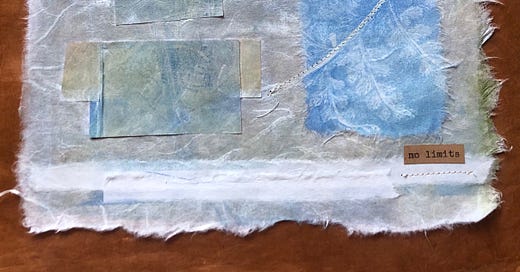On Writing Past and Through Silence
Tillie Olsen, Virginia Woolf, and "the little platform of present time"
In 1962, Tillie Olsen came to the Radcliffe Institute to talk about silence. Silence. She spoke from notes, her remarks were taped, and ultimately a version of that talk would be published first in a magazine, then in a book.
It would gain momentum.
In Silences, Olsen is primarily concerned with silences of the unnatural kind—“the thwarting of what struggles to come into being, but cannot.” She writes of Rimbaud and the mere nineteen poems he produced over the course of his final nine years. She writes of Melville and his being “damned by dollars into a Customs House job.” She writes of Katherine Anne Porter, for whom twenty years went by during the writing of the Ship of Fools. She writes of Kafka and she writes of herself—the “twenty years I bore and reared my children, usually had to work on a paid job as well, the simplest circumstance of creation did not exist.”
Virginia Woolf begins her A Sketch of the Past by enumerating the difficulties that stand between her and the memoir she might write. Right up front, she’s listing the problems. There are so many things to remember, she says. And there are so many different ways to write a memoir. She could throw her hands up, like sometimes we throw up our hands (or at least I do). But, in the end, she takes the plunge.
So without stopping to choose my way, in the sure and certain knowledge that it will find itself—or if not it will not matter—I begin: the first memory.
Obviously, all memoir does not begin with the first memory, though many writers do attempt to begin in that place. For Woolf, the first memory is boon. It gets her going. She quickly grows ecstatic as she can see and hear again her past as it was—the sound of waves, the sound of a blind drawing its acorn against the floor as the wind blew.
Just a few paragraphs in, she stops. She’s finding this writing hard again. She’s diverting her attention, and ours, until, finally, she returns to that nursery and now again the momentum builds, and Woolf is in the groove, and perhaps she thinks, and certainly we think, she’s got this.
But then, like all of us, she has to put her pen down, and when she returns to this memoir a few weeks later, she has to talk or think or remember her way back in time. She struggles until she realizes that her best means of returning to her past is to stand on what she calls “the little platform of present time.” She will find a way, here, and later, to use the details of the immediate hour to send her back to the past.
The approach works until it doesn’t. Until life, and war, intervene for months at a time. Many months will pass between Woolf’s July 19, 1939 entry and her June 8th, 1940, when she writes:
Shall I ever finish these notes—let alone make a book of them? The battle is at its crisis; every night the Germans fly over England; it comes closer to this house daily. …. book writing becomes doubtful. But I wish to go on, not to settle down in that dismal puddle.
Olsen’s unnatural and natural silences thwart Woolf throughout the writing of this sketch. Indeed, Woolf will never finish this memoir. But she will have finished a record not just of part of her life, but a record of her recording that part of her life. She has shown us a mind at work, a mind working through. And that, too, is life. That, too, is literature.





The Olsen quote about raising children and working and that "...the simplest circumstance of creation did not exist.” resonated. That is an ever present struggle and the contemplation of my Substack next week. Thank you for taking up the unnatural silences that thwart. I wrestle daily with Clarissa Pinkola Estes's insistence, "A woman must be careful to not allow over-responsibility (over-respectability) to steal her necessary creative rest, riffs, and raptures...Art is not meant to be created in stolen moments only." (Women Who Run With the Wolves) And I love these wise, reminding words from this from you, “She has shown us a mind at work, a mind working through. And that, too, is life. That, too, is literature.”
My mother took me to hear Tillie Olsen read sometime in the late 70s. Margaret Atwood, Alice Munro and Margaret Laurence at reverently in the front row. Meeting Tillie after the reading had a powerful impact on my life. I wish I could show you her inscription in my copy of Silences, but Substack doesn’t allow photos in comments (you can see it in an essay on my stack). I struggled for many years to put Tillie’s call into practice, to believe I had anything to say that people would read. One of Tillie’s daughters is among my readers, connection to my transformative encounter with her mother.